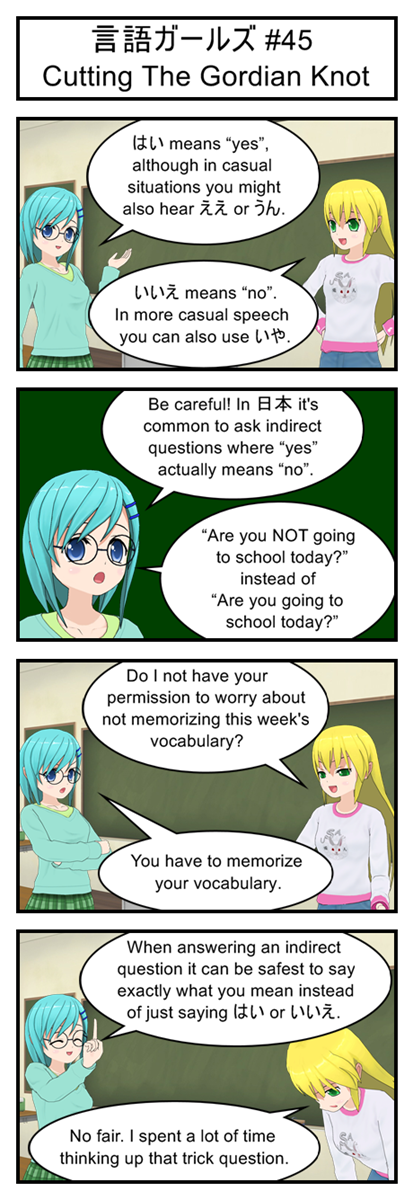
In English we use “yes” and “no” in a very flexible way. If someone asks “Are you not going to school?” we would interpret a “yes” to mean “Actually, yes, I AM going to school”.
But in Japanese “yes” and “no” are more literal. If someone asks “Are you not going to school?” an answer of “yes” means, “Yes, you are correct. I am NOT going to school.”
And since the Japanese love to pad their questions with polite modifiers that switch around the meaning of yes and no you can see why it’s a good idea to give a full answer to any question that you didn’t 100% fully understand. A native speaker might misinterpret what you mean by “yes” or “no” but there’s no room for confusion when you say “Yes, I want some ice cream”.
Vocabulary
はい = yes (polite)
ええ = yes (casual)
うん = yes (casual)
いいえ = no (polite)
いや = no (casual)
Transcript
言語ガールズ #45
Cutting The Gordian Knot
Blue: はい means “yes”, although in casual situations you might also hear ええ or うん.
Yellow: いいえ means “no”. In more casual speech you can also use いや.
Blue: Be careful! In 日本 it’s common to ask indirect questions where “yes” actually means “no”.
Blue: “Are you NOT going to school today?” instead of “Are you going to school today?”
Yellow: Do I not have your permission to worry about not memorizing this week’s vocabulary?
Blue: You have to memorize your vocabulary.
Blue: When answering an indirect question it can be safest to say exactly what you mean instead of just saying はい or いいえ.
Yellow: No fair. I spent a lot of time thinking up that trick question.